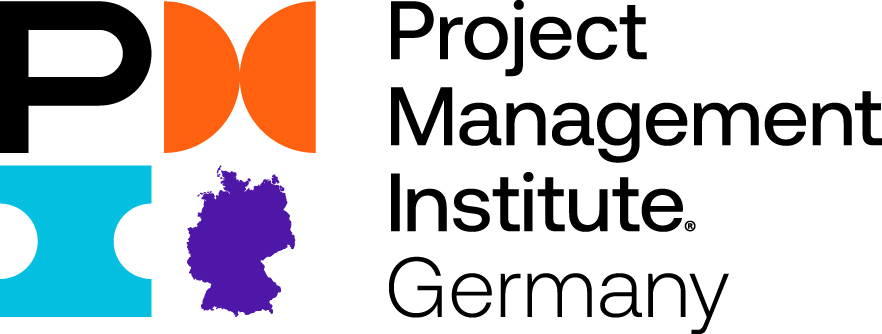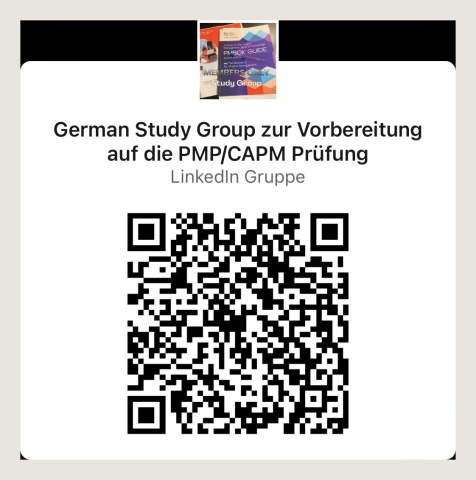Study Group Session - Processes: Time management and agile approaches (Smita Brahmachari)

Processes: Time management and agile approaches
This session intends to delve into Time Management Principles and Agile Methodologies, both crucial for PMP aspirants. It aligns with PMBOK’s Project Schedule Management knowledge area, covering key concepts like defining activities, sequencing tasks, estimating durations, and controlling schedules. You’ll explore methods such as the Critical Path Method (CPM), Earned Value Management (EVM), and Agile frameworks like Scrum and Kanban to enhance efficiency in real-world projects.
Explore iterative planning, adaptive scheduling, and timeboxing for your last steps of exam preparation.
Themenfolge
- Introduction
- Understanding Time Management in Agile.
- Key PMBOK Time Management Concepts
- Agile Time Management techniques
- Key PMBOK Tools & Techniques for Time Management.
- There are no surprises - what to expect on the exam.
- Best Practices & Real-World Applications
- Q& A and Wrap Up
About the Tutor
Smita Brahmachari is an accomplished project management professional with over 12 years of experience and a range of certifications, including PMP, ACP, Agile Scrum Master, Agile Coach, and Six Sigma Black Belt.
As a study group tutor for the PMI Germany Chapter, she combines her expertise across agile and traditional project management with a wealth of practical experience in finance, HR, e-learning, software development, and supply chain management.
Having been a successful entrepreneur in e-learning, Smita is dedicated to empowering PMP candidates by offering guidance that goes beyond theory. Her mentoring style, enriched by real-world examples and customized study plans, helps participants build confidence, resilience, and essential skills. She inspires each candidate to view the PMP exam as a stepping stone to a fulfilling career. With her support, students gain not only the knowledge to pass the exam but the mindset to thrive in project management.
Agenda
05 min Personal introduction
25 min Presentation on the topic
30 min Questions and answers
Informationen about the Event
Language
![]() The event will be held in English. A translation into German will be offered in parallel via subtitles.
The event will be held in English. A translation into German will be offered in parallel via subtitles.
Waiting list
For non-members - persons without PMI Germany Chapter e. V. membership - there is a waiting list. The organizer does not guarantee that non-members will receive an event link. The same applies here: first come, first serve.
Contact
Contact for questions: E-Mail to Annette Born, Princess Ibiene George, Wendy Füllgraf, Ramanjeet Kaur, Pierre Correl, Thomas Anderl, Jörg Glunde
LinkedIn: https://www.linkedin.com/groups/8910815/
Event Information
| Event Date | 16.09.2025 18:00 |
| Event End Date | 16.09.2025 19:00 |
| Cut off date | 15.09.2025 19:00 |
| Available Place | 15 |
Speakers
Smita Brahmachari
Study Group Tutor
Smita Brahmachari ist eine versierte Projektmanagement-Expertin mit über 12 Jahren Erfahrung und einer Reihe von Zertifizierungen, darunter PMP, PMI-ACP, Agile Scrum Master, Agile Coach und Six Sigma Black Belt. Als Study Group Tutor für das PMI Germany Chapter kombiniert sie ihre Expertise im agilen und traditionellen Projektmanagement mit einem reichen Erfahrungsschatz aus den Bereichen Finanzen, HR, E-Learning, Softwareentwicklung und Supply Chain Management. Als erfolgreiche Unternehmerin im Bereich E-Learning widmet sich Smita der Befähigung von PMP-Kandidaten, indem sie Anleitungen anbietet, die über die Theorie hinausgehen. Ihr Mentoring-Stil, angereichert durch Beispiele aus der Praxis und maßgeschneiderte Studienpläne, hilft den Teilnehmenden, Selbstvertrauen, Resilienz und grundlegende Fähigkeiten aufzubauen. Sie inspiriert jeden Kandidaten, die PMP-Prüfung als Sprungbrett zu einer erfüllenden Karriere zu betrachten. Mit ihrer Unterstützung erwerben die Schüler:innen nicht nur das Wissen, um die Prüfung zu bestehen, sondern auch die Denkweise, um im Projektmanagement erfolgreich zu sein. Ihr Schlüssel zum Erfolg: Neugierig und anpassungsfähig zu bleiben und sich auf kontinuierliches Wachstum zu konzentrieren, während sie andere dazu befähigen, ihr volles Potenzial auszuschöpfen.





